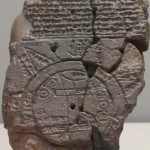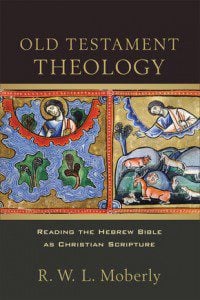No scholar influenced me in my early career as much as George Eldon Ladd. I join thousands to say we were (or are) Laddian. In 1974, when I was about to finish my sophomore year at Cornerstone University (where I’m giving the commencement address today), I was at Eerdmans the day they unloaded the freshly printed copies of his A Theology of the New Testament. I gobbled one up and by the time I graduated from college I had read and read and read that thing. Ladd’s argument was that salvation-history, the dynamic of now but not yet, was at the core of Jesus’ kingdom vision and the theology of the entire New Testament.
 I never met Ladd, nor did I ever hear him give a lecture. But during my college career I read his book on the rapture (The Blessed Hope: A Biblical Study of the Second Advent and the Rapture), his lectures that dismantled the current form of dispensationalism (Gospel of the Kingdom: Scriptural Studies in the Kingdom of God), and while in college I loved his book on Jesus’ eschatology (The Presence of the Future: The Eschatology of Biblical Realism). His view of the kingdom of God as the dynamic reign, hammered out during his disputes with dispensationalism, became standard fare for evangelicals and no scholar influenced evangelicalism in the 50s-80s more than Ladd — though I now think his framing of the issue led him to see kingdom in too spiritual of terms.
I never met Ladd, nor did I ever hear him give a lecture. But during my college career I read his book on the rapture (The Blessed Hope: A Biblical Study of the Second Advent and the Rapture), his lectures that dismantled the current form of dispensationalism (Gospel of the Kingdom: Scriptural Studies in the Kingdom of God), and while in college I loved his book on Jesus’ eschatology (The Presence of the Future: The Eschatology of Biblical Realism). His view of the kingdom of God as the dynamic reign, hammered out during his disputes with dispensationalism, became standard fare for evangelicals and no scholar influenced evangelicalism in the 50s-80s more than Ladd — though I now think his framing of the issue led him to see kingdom in too spiritual of terms.
But for many of us, Ladd provided an eschatology that broke free of the traps of the discussions of those days and exhibited a model of interacting with the best of scholarship. He was always committed to spreading the gospel in the whole world.
But what was Ladd like? John D’Elia, A Place at the Table: George Eldon Ladd and the Rehabilitation of Evangelical Scholarship in America, has told us. The story is told well; the story, however, is not one of a hero but of a broken Christian scholar. D’Elia’s scholarship is excellent and this book deserves to be on the shelves of every theological library. Ladd single-handedly reinvigorated evangelical scholarship and D’Elia tells that very story. I couldn’t put the book down.
Here are the basics: Ladd’s family life was not comfortable or warm or financially stable; he was intelligent, was encouraged by some, and eventually got a college degree — but to his dismay it was not from an accredited college and so getting into graduate programs became taxing to him. Ladd pastored and participated — as one gifted to articulate theology — in denominational meetings and disputes. Eventually Ladd acquired a vision: he would find a way to the real academic table, he would prove that evangelicals are as good as scholars as the liberals.
I entered the academic world when many evangelicals were seeking to do the very thing Ladd sought to do: find a place at the table. Ladd wrote his dissertation at Harvard, was hired at Fuller in 1950 and taught until 1982, and wrote all those books in those days. But there are some sad dimensions of his story, three of which deserve to be mentioned and I do so with a heart for Ladd: his family life was anything but happy, he struggled with alcohol, and The Presence of the Future, his first major book — the one designed to give evangelicals a place at the table — was trenchantly criticized by Norman Perrin in a review, and that review hit Ladd so deeply that he considered himself a failure from that point on. [That book was originally titled Jesus and the Kingdom.] His NT theology, though published many years later, emerged from those early years when he was developing the eschatology of Jesus, and his scholarship from the days of that review on were never quite the same.
We are in debt to this very fine and judicious study of John D’Elia, and I would urge younger scholars to read this book to get a feel for what those of us who are 50+ have experienced and went through when we were coming of age, because George Eldon Ladd was a Titan, his work irreplaceable, and his impact incalculable.
Perhaps because we have weathered those “at the table” hopes and yearnings, and certainly because of my own participation in the academic world (which I love), Ladd’s vision is not as vital as it once was. Nor should it be. I don’t believe our goal as Bible or theology scholars is to be deemed among the finest of scholars or to find a place at the table, but to be faithful to Jesus Christ and to the gospel and to orthodox theology and to academic rigor. Yes, we are to work to discover and to be creative, but the driving passion to prove ourselves at the feet of others falls short of a true Christian telos. I’d put it this way: we are called to be faithful, whether we are accepted or not.














